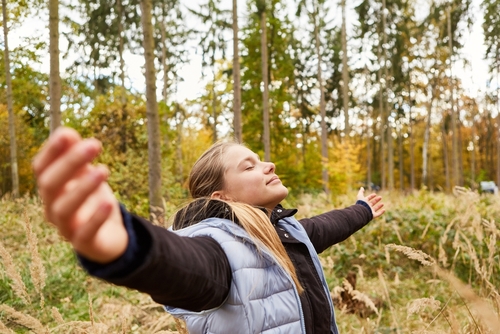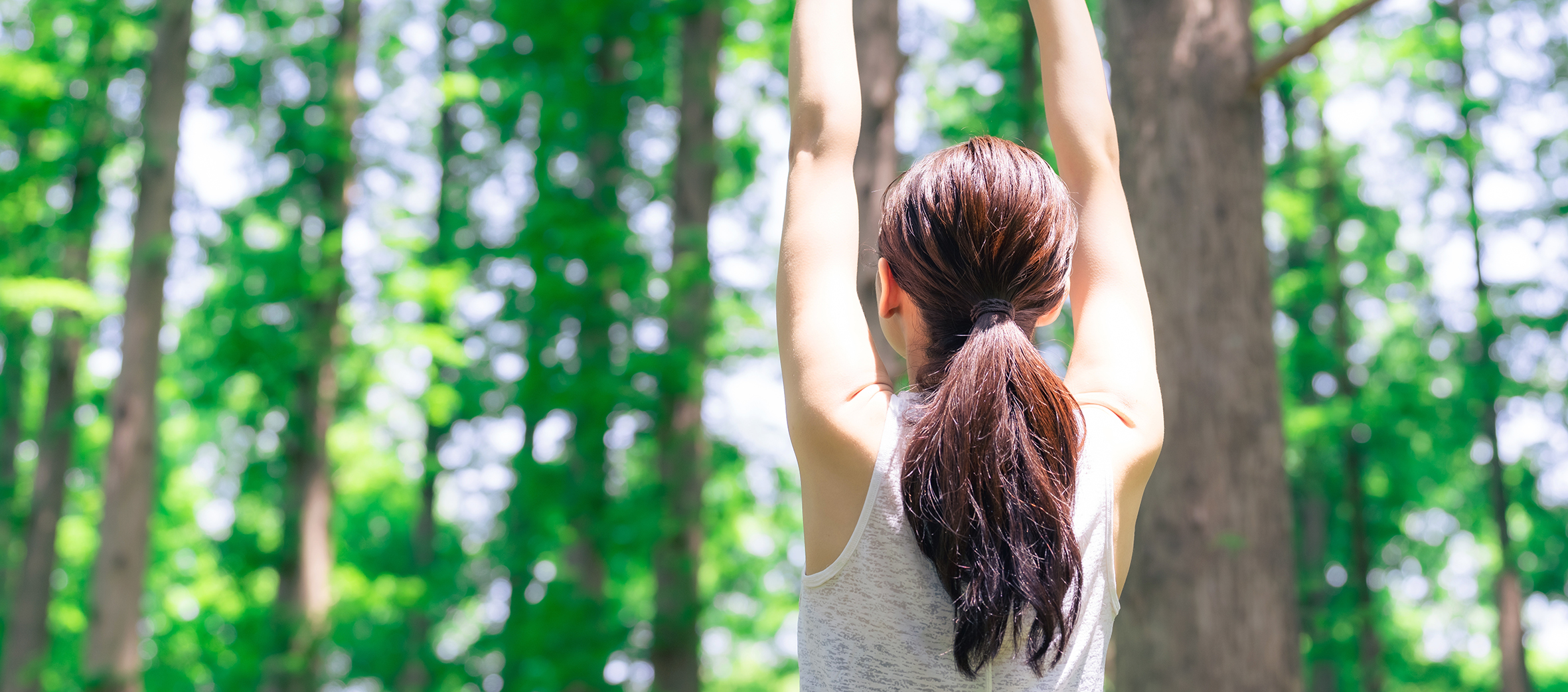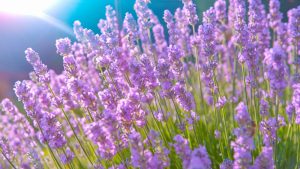Springtime is the perfect time to try forest bathing, not just because it’s a beautiful time to spend outdoors but because many people start to suffer from sleep-related problems during the change in seasons, for several reasons.
Firstly, we get an extra hour of light which can make it harder to sleep at night as our internal body clock is confused as to why it’s no longer dark in the late afternoon.
Then there are the added social pressures that come with spring – people make more plans and may drink more – both of which can negatively impact a person’s sleep as it’s no longer as much of a priority. However, by making forest bathing a daily habit, you can overcome these sleep-related issues.

(The top 10 places for forest bathing can be found on Happy Bed’s blog.)
But what is forest bathing, you ask?
Whilst forest bathing may sound like you go to a forest to take a bath in a pond or lake, this isn’t exactly true. Instead, it’s the act of walking through a forest (or wood) and taking time to slow down and immerse yourself in nature. You soak up the sights, sounds, smells and textures of the environment which, in turn, lower your cortisol levels (otherwise known as the stress hormone) and create more positive emotions such as joy, vitality and peacefulness.
Here are the four sleep benefits of forest bathing
1. 17 minutes spent outdoors can reset your body clock, making it easier to fall asleep at night.
Studies show that just 120 minutes per week (so 17 minutes per day) spent outdoors is associated with good health and well-being. Those who spent more time outdoors discovered their sleep hormone (otherwise known as melatonin) started to rise at sunset, around two hours earlier than their usual bedtime, meaning they fell asleep much faster at night. They also woke earlier the next morning, alongside the sunset.
2. These 17 minutes can also lower your stress levels throughout the full day.
It’s well known that high levels of stress will prolong how long it takes to get to sleep by around 20 minutes. And when you do fall asleep, it’s likely you will experience fragmented sleep cycles. Disruptions in those sleep cycles will significantly affect your mood the next day and even your falling asleep the next night. However, many studies show that spending time in nature can help lower your cortisol levels (otherwise known as the stress hormone).

3. Being in nature can reduce negative, repetitive thoughts which can help those who have anxiety.
More than 50% of the world lives in urban areas, with that expected to rise to 6 billion people in the year 2045. In response, a study attempted to highlight the benefits that taking time in nature can do for those that he negative, repetitive thoughts when living in urban areas. The researchers found that walking in natural scenery reduced those thoughts, compared to those who took the same length of walk through an urban area.
4. You’ll find it easier to bounce out of bed in the morning.
If you feel groggy when waking after sleep, or you feel that your quality of sleep wasn’t right, then you need to start heading outdoors. Exposure to sunlight during the day will help to solve those issues. Not only will it make you feel more tired at night, but it will shorten the time it takes to get you to sleep and improve the quality of your sleep cycles. This is important because those sleep cycles will affect how you get up in the morning and your ability to concentrate throughout the day.

A beginner’s guide to trying forest bathing for the first time
Forest bathing isn’t just about spending time outdoors in beautiful scenery; it’s about feeling it. Here are our top tips for igniting your senses:
- Wear comfortable clothing and shoes that allow your feet to sink into the ground as you walk, so you feel more connected to the earth. If you plan on getting wet or going out on a rainy day, make sure you have waterproof shoes, too. All of this will prevent your mind from focusing on uncomfortable shoes or clothing.
- Smell the air as you walk through trees and pass any plants. Think about which smells are strongest and take in the environment. Can you smell pine needles, wildflowers or other?
- Notice the sounds of rustling leaves, birds and other animals. If you see any, try to identify them by their size, shape, colourations, and patterns. Or if you spot an animal moving through the trees quickly, try to guess what it might be.
- Touch your surroundings. As you pass a tree, brush it with your hand to feel its roughness, or reach out and touch the leaves of an overhanging branch to see its texture. Feel the texture of leaves, moss, and other plants. If you see flowers, pick one (if it’s allowed).
Discover the magic of Mauritius





